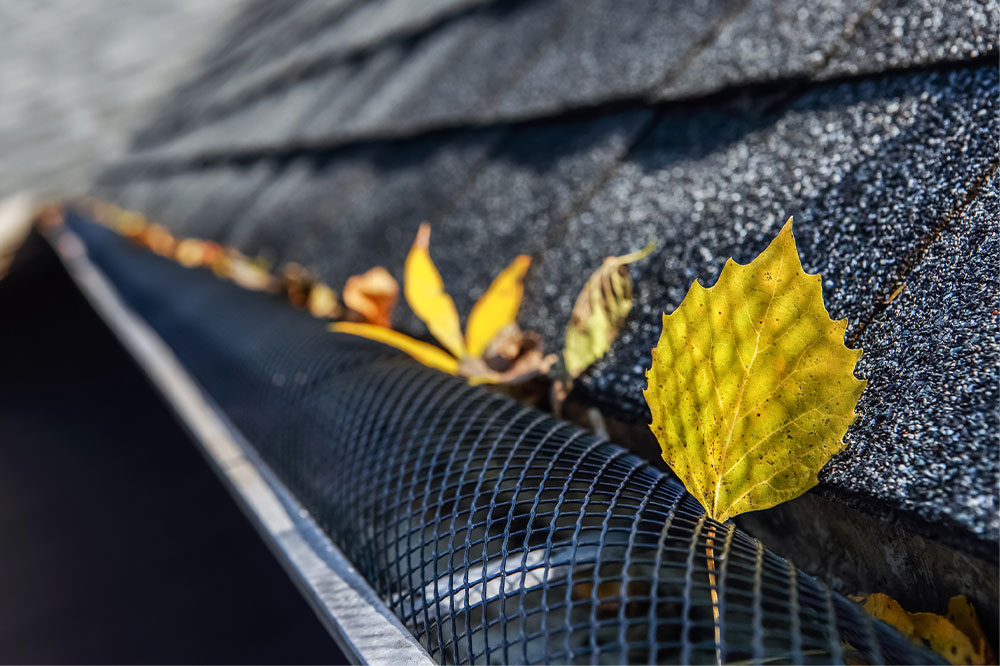
5 most common types of gutter guards
Many houses and buildings have gutters on their roofs to drain rainwater and prevent it from accumulating and leading to mold formation. Sometimes, gutters get choked with debris and leaves, leading to water backing up inside. Installing a gutter guard is one of the most common ways to prevent gutter blockages. This post discusses the different types of gutter guards and their most valuable benefits to help you choose the best option for your property.
Types of gutter guards
Gutter guards act as a protection system for rain gutters. They are nothing but filters installed above the gutters to stop the leaves, debris, or other things from entering them. They are made of either plastic or metal and have some essential benefits. However, the market has several kinds of gutter guards with different designs. We understand that choosing the best option for yourself may get tricky. To help you with the selection, we have rounded the common types of gutter guards available:
- Screen gutter guards
As the name suggests, these gutter guards have a flat, screen-like filter. These filters have holes that let water pass through while keeping leaves and other materials from entering the gutter. Screen gutter guards do not cost much and are pretty affordable. You can install them on your own without hiring a professional. The only drawback tis that, depending on the holes’ size, they may allow smaller debris to pass. - Mesh gutter guards
These are similar to screen guards but with tinier holes. Their design makes the litter flow over and fall from the roof for you to collect. But mesh gutter guards must be installed by a professional. While they are highly durable and block most of the debris, they cost more than screen guards. - Micro-mesh gutter guards
These are similar to mesh guards but with tinier holes. They ensure no debris passes through, acting as the perfect gutter protection system. Micro-mesh guards are suitable for areas with excessive dirt, pollen, and pine shredding but can only be installed by professionals and require regular cleaning. - Brush gutter guards
These guards look like the bristles of a brush. They sit inside the gutter, allowing water to pass while blocking debris. Their excellent design filters almost all unwanted material from entering the gutter. Brush gutter guards can be easily removed. The only drawback is that they may become a hassle to clean as they trap debris firmly in their bristles. - Reverse gutter guards
Also known as surface tension guards, these have an old design but effectively block debris from entering the gutters. They come with a hood made with either aluminum or plastic with a curved edge. This edge creates a slot between the lip of the gutter and its surface inside. When it rains, the water flows easily down the hood, into the curve, and back into the gutter. The debris easily falls to the ground. However, reverse gutter guards are ineffective during heavy rains as the water may shoot above the curve. They are also pretty visible and may interfere with the aesthetics of your house.
Benefits of installing gutter guards
While choosing the right gutter guard for your home can be challenging, it provides a range of valuable benefits in the long run, keeping you stress-free. The best advantages are discussed below:
- Gutter guards stop the gutters from clogging. This prevents their overflow and other severe problems like mold formation, cracks in the foundation, and basement flooding.
- Cleaning clogged gutters takes a lot of time and can also be expensive, especially when you call in professionals. Installing gutter guards saves you time and money.
- The guards stop pests, insects, and smaller animals, such as mice, squirrels, and birds, from breeding in the gutters.
- Gutter guards prevent gutters from getting rusted and corroded because of moisture-laden leaves sitting in them.
- The gutter covers prevent ice dams from forming by preventing debris from accumulating.
When choosing gutter guards, it is essential to consider some critical factors, such as their visibility from your roof, the amount of rainfall you receive, and your budget. Once you have answered these questions, you can select the best options for your home. Remember, the total cost can go up or down depending on the guard’s quality and durability and whether or not you hire professionals for installation. Once you install new guards, ensure to clean and maintain them regularly to prevent costly repairs. Always research before deciding and seek the advice of other homeowners who already have gutter guards installed.




